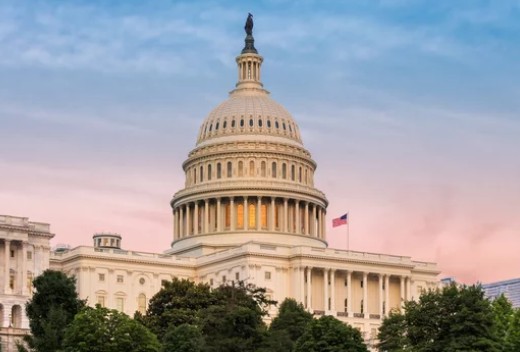
Caregiver Action Network (CAN) is dedicated to improving the quality of life for the more than 63 million family caregivers across the country. Our legislative and public policy priorities focus on removing barriers, increasing access, and enhancing support for family caregivers so they can provide the best care possible for their loved ones.
Healthcare Access and Affordability
Protecting Medicare Coverage
CAN opposes policies that limit patient access to FDA-approved therapies, such as “Coverage with Evidence Development” (CED). These restrictions often delay access to treatment and place additional burdens on caregivers, especially those caring for individuals with Alzheimer’s disease and other serious conditions.
Preserving the FDA Accelerated Approval Pathway
We strongly support the FDA’s Accelerated Approval Program, which enables faster access to innovative and life-saving treatments for individuals with serious and life-threatening illnesses. Legislative efforts that would weaken or restrict this program risk delaying treatments caregivers and their loved ones urgently need.
Reducing Out-of-Pocket Drug Costs
CAN advocates for policies that ensure savings negotiated by insurers and pharmacy benefit managers are passed directly to patients at the point of sale. We also support efforts to cap out-of-pocket costs under Medicare Part D to relieve the financial strain on caregivers and families.
Opposing Shifts from Medicare Part B to Part D
We oppose proposals that move coverage of infused or injected medications from Medicare Part B to Part D. Such changes would often increase out-of-pocket expenses and limit treatment access, especially for patients receiving care in outpatient settings.
Caregiver Inclusion and Support
Access to Health Information
We support efforts to ensure caregivers can access the health information of those they care for, with appropriate patient consent, as outlined under HIPAA. Caregivers must be fully integrated into care teams to improve outcomes and reduce medical errors.
Training and Resources from Home Health Providers
We urge the inclusion of caregiver training and education as part of standard home health services. Ensuring caregivers are prepared to provide complex care at home is critical for both patient well-being and caregiver health.
Support for In-Home and Community-Based Care
CAN supports expanding access to in-home care services and ensuring caregivers can use financial resources—such as Health Savings Accounts—to pay for care-related expenses. We also advocate for increased funding for Home and Community-Based Services (HCBS) so that individuals can receive care at home rather than in institutional settings.
Medicaid Support and Caregiver Compensation
Programs like the Consumer Directed Personal Assistance Program (CDPAP) empower families by allowing them to choose and compensate family members for caregiving. We support maintaining and expanding these options for Medicaid beneficiaries.



Medication Policy and Patient Protection
Opposing Non-Medical Switching
We advocate for policies that prohibit insurers and pharmacy benefit managers from switching a patient’s medication for non-medical reasons. Any changes to a treatment plan should involve approval from the patient, their caregiver, and their physician.
Concerns with Government Drug Price Negotiations
While we support efforts to reduce prescription drug prices, CAN remains concerned that certain provisions—such as those in the Inflation Reduction Act—may hinder innovation and reduce access to new treatments. We urge policymakers to consider the long-term implications for patients and caregivers alike.
Long-Term and Institutional Care

Support Through Nursing Home Transitions
When a loved one enters a nursing home, the caregiver’s role does not end. CAN supports policies that recognize the ongoing responsibilities of family caregivers and ensure they remain involved and supported during this transition.
Financial Relief for Family Caregivers
Federal Tax Credits for Caregivers
We advocate for a federal tax credit to provide financial relief for the many caregivers who make personal and financial sacrifices to care for loved ones. Recognizing and valuing their contributions is an important step toward building a more supportive caregiving infrastructure.

Support for Diverse Caregiving Communities

Resources for BIPOC and Underserved Caregivers
CAN is committed to addressing the unique challenges faced by caregivers from marginalized communities. Initiatives like our Blueprint for BIPOC Caregivers of Children with Mental Health Issues are designed to address systemic inequities and ensure all caregivers have access to culturally relevant and responsive support.
Enacted Laws Supporting Caregivers
- Congress: 118th Congress (2023–2024)
- Status: Signed into law on January 2, 2025
- What it does: This law expands support for veterans and their caregivers by:
- Allowing the Department of Veterans Affairs (VA) to fund in-home care at the same rate as nursing home care, making it easier for veterans to receive care at home.
- Launching a pilot program to provide home health aides in areas with shortages.
- Enhancing mental health services and support for family caregivers.
- Requiring the VA to create a centralized website to help veterans and caregivers access home and community-based services.
- Ensuring home care options are available for Native American veterans
- Link to this legislation
- Congress: 115th Congress (2017–2018)
- What it does: Created a national plan to support family caregivers with training, workplace flexibility, and respite care.
- Status: Signed into law on January 22, 2018.
- Link to this legislation
- Congress: 115th Congress (2017–2018)
- What it does: Helps grandparents raising grandchildren by connecting them with services and creating a federal advisory council.
- Status: Signed into law on July 7, 2018.
- Link to this legislation
Proposed Legislation Affecting Caregivers
- Congress: 119th Congress (2025–2026)
- What it does: Offers up to a $5,000 tax credit to eligible family caregivers to offset care-related expenses like home care, respite, and equipment.
- Status: Introduced in House and Senate on March 11, 2025; referred to committees.
- Link to this legislation
- Congress: 118th Congress (2023–2024)
- What it does: Expands the National Family Caregiver Support Program to offer more training, flexible services, and improved access to respite care.
- Status: Introduced; pending committee action.
- Link to this legislation
- Congress: 117th Congress (2021–2022)
- What it does: Expands eligibility for unpaid leave under the FMLA to more caregivers, including part-time and small business employees.
- Status: Introduced in April 2021; referred to committee.
- Link to this legislation
- Congress: 119th Congress (2025–2026)
- What it does: Aims to improve Medicare access for seriously ill seniors, which may reduce caregiver strain by improving care coordination.
- Status: Introduced in House on March 6, 2025; referred to the House Committee on Ways and Means.
- Link to this legislation
- Congress: 119th Congress (2025–2026)
- What it does: Helps caregivers interact with Medicare, Medicaid, and Social Security more easily by improving information sharing and simplifying systems.
- Status: Introduced March 31, 2025; referred to multiple committees.
- Link to this legislation
- Congress: 119th Congress (2025–2026)
- What it does: Expands the VA’s Program of Comprehensive Assistance for Family Caregivers, especially for veterans with mental health or neurological conditions.
- Status: Introduced January 28, 2025; referred to the Senate Committee on Veterans’ Affairs
- Link to this legislation
- Status: Introduced
- What it does: Requires the Department of Veterans Affairs (VA) to formally recognize caregivers by including them in veterans’ health records, ensures standardized notifications about changes in caregiver program eligibility, and provides a 90-day extension of benefits when a veteran is deemed ineligible—unless specific exceptions apply.
- Link to this legislation
- Congress: 119th Congress (2025–2026)
- Status: Introduced
- What it does: Aims to reduce financial burdens on caregivers, potentially through tax relief or other cost-saving measures. Specific details are pending as the summary is not yet available.
- Link to this legislation
- Congress: 119th Congress (2025–2026)
- Status: Introduced
- What it does: Expands benefits for family caregivers of veterans, including extended medical coverage after their designation ends, and introduces programs to support their employment and retirement needs.
- Link to this legislation
- Congress: 119th Congress (2025–2026)
- Status: Introduced
- What it does: The Senate version of H.R.2148, focusing on enhancing medical, employment, and retirement benefits for caregivers of veterans.
- Link to this legislation
- Congress: 119th Congress (2025–2026)
- Status: Introduced
- What it does: Proposes amendments to the Older Americans Act to include peer support as a service within the National Family Caregiver Support Program, aiming to provide additional resources for caregivers.
- Link to this legislation
Advocacy Statements
Caregiver Action Network’s official positions on legislation, regulatory actions, and advocacy efforts that impact caregivers across the country. Whether we’re amplifying caregiver voices through coalition efforts or issuing independent statements, these statements reflect our ongoing commitment to advancing policies that support and strengthen America’s family caregivers.



